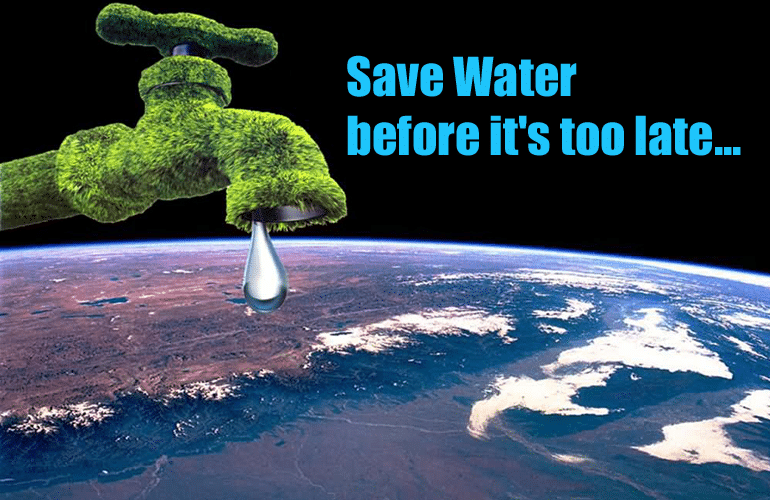“Water-water everywhere not a drop to drink…”
How often have we heard this pain-inducing phrase? Perhaps, one has lost the count. You’ve seen countless documentaries and heard several thought-pieces about saving water; encouraging everyone to consume it wisely.
Yet, much of the world continues to struggle with constantly receding reserves of water.

After all, of all the 194 countries in the world, not everyone has the God-given natural luxury of a Switzerland or Finland. Not every nation has the comfort of being home to thousands of lakes. This is, indeed, a precarious situation.
In case you are wondering how, here’s an alarming fact-
The world’s 7.2 billion population is set to rise to a sky-rocketing, rather back-breaking figure of 9.6 billion by 2050. Just imagine the kind of load it’s naturally going to impose on already waning resources of water. Add to this the real ignominy of a natural handicap. Scientists have been pointing out for a while that a significant proportion of freshwater reserves are trapped in the polar ice caps and glaciers.
In 25 years’ of time, a staggering 6 billion people will be experiencing water shortages.
At present, only 0.649% of water resources can be used for drinking.
With these current set of challenges, the United Nations (UN) is encouraging people to group together and observe one of mankind’s most burgeoning challenges with great caution. The focus, this year on March 22 is on the world’s fresh water.
This is particularly because a number of world’s leading water-bodies are drying up, and increasingly so. The National Geographic recently redirected the world’s attention to a matter of grave concern. In the past few decades, world’s most important rivers- whether from Australia to China, Africa to India- have been mightily overused. They’ve been drained for agriculture, drinking usage and, industrial usage.
This might sound like an incoherent statement when it is so much more.
The Colorado River in the US hardly reaches its delta and the Gulf of California. Here’s why. It’s been burdened by excessive usage for agricultural and industrial usages. It already feeds 30 million at a time.
Similarly, the Indus River, the most dependable source of freshwater for Pakistan with roughly 170 million people observes a shriveled up delta. It’s once-fertile rice paddies and fisheries have undergone a severe beating.
That said, the Yellow River in China has been repeatedly drying up ever since 1972. When not marred by floods, world’s second-largest river has been challenged by over-utilization for agricultural purposes. Two decades back, it did not flow for 230 days. Can you believe that?
All that said, it goes without saying that our lives depend on water. But the simple fact is, you’ve got to consume water as if your everyday survival depends on it.
Consider it to be the vital breaths of life a patient is left with.
With time running out, the consumption is ought to be judicious. Even a little carelessness can spell an unmitigated disaster. It’s now or never.
This is indeed one of mankind’s most defining travesties, one that is alarmingly knocking on our doors. The United Nations is encouraging people to wake up from the slumber and be aware of the catastrophe that lurks somewhere in the future.
The time to act is now.

